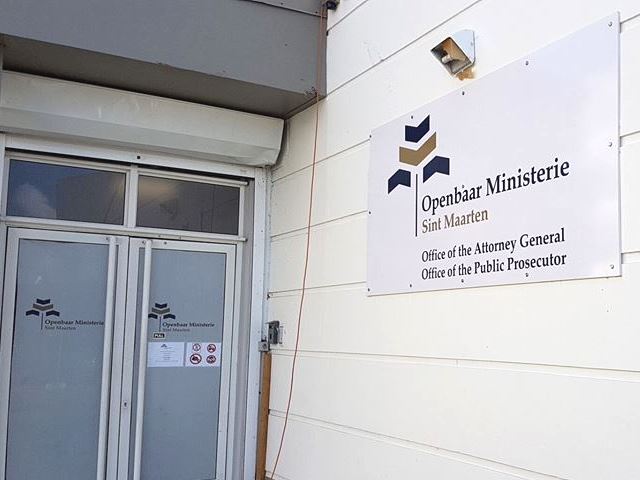PHILIPSBURG, Sint Maarten — The Public Prosecutor of the Attorney General’s Office of Curacao, Sint Maarten and Bonaire, Sint Eustatius and Saba has offered three suspects of money laundering an out-of-court settlement.
All suspects, a legal entity incorporated under the laws of Anguilla named Prospect Trading Limited and its ultimate beneficial owners, an entrepreneurial couple residing on Sint Maarten, have accepted the proposal.
Investigation Amoer
In 2014 and 2015, a Sint Maarten based financial institution reported several unusual transactions (which could be linked to aforementioned suspects) to the Financial Intelligence Unit (hereinafter: “FIU”). After analysis by the FIU, these were identified as suspicious transactions and subsequently reported to the Public Prosecutor’s Office.
From June 2016, a special investigation team consisting of investigators from the Sint Maarten Police Force (KPSM) and the Special Police Taskforce (RST) investigated possible cross-border money laundering infrastructures. This investigation, codenamed Amoer, was performed under authority of the Public Prosecutor’s Office.
Suspected complex money laundering construction
Through extensive investigations – where the investigative team was to a large extent dependent on assistance from the judicial authorities of Canada, Germany, and the United States of America – several suspicious money flows were identified.
The Public Prosecutor’s Office suspects that these are part of a complex, cross-border money laundering scheme which could launder large amounts of money.
A cluster of companies active in the car rental industry on Sint Maarten frequently transferred money to the Anguillan legal entity from where further distribution took place. This happened beyond reach of the authorities in Sint Maarten.
Certain typical patterns are recognizable in the investigated money flows. For example, with intervention of the Anguillan entity and (foreign) bank accounts, the money flowed through several jurisdictions without a clear economic purpose. This is a so-called money laundering typology.
Part of the money flows were accounted for by a web of intercompany loans but also by money loans between the Anguillan entity and the various Sint Maarten car rental operating companies. Investigation revealed that this accounting was not conclusive.
On the contrary: according to the Public Prosecutor’s Office it showed irregularities.
This contributes to the money laundering suspicion.
In addition, the alleged money laundering cycle revealed frequent cash exchanges (without clear economic purpose). These exchanges were made through cheques issued on behalf of various companies and subsequent withdrawals and deposits into the private accounts of the entrepreneurial couple.
This was followed by cross-border transfers which ended in a couple of events in the purchase of real estate in Germany and the United States of America but also in private spending through credit card transactions. Such behavior related to the transfer of funds is internationally considered as a money laundering typology: it may indicate an intended interruption or concealment of the paper trail.
Money laundering without a demonstrable predicate offence
The investigation did not lead to identification of a specific crime from which the circulated money may have originated, in legal jargon also referred to as a “demonstrable predicate offence”. For a suspicion of money laundering it is not necessary to identify such offence. The process of money laundering itself is independently punishable, regardless of whether one or more predicate offences can be indicated.
A money laundering suspicion without demonstrable predicate offence is generally based on aforementioned money laundering typologies. These international standards have been defined, in an intergovernmental context, by the Financial Action Task Force (FATF) and are subsequently implemented in each jurisdiction by the respective FIU’s.
The role of service providers who facilitate such activities has also been subject to investigation. This part of investigation Amoer has not yet been finalized. Financial service providers such as trust offices, just like other stakeholders, have a shared responsibility to protect the integrity, stability and reputation of the financial sector.
Reasons for a transaction
Money laundering is a serious offence. Tackling money laundering is priority for law enforcement agencies due to its great importance to effectively fight crime. Disguising the origin of criminal proceeds enables perpetrators to stay out of reach of law enforcement agencies and, consequently, enjoy their accumulated wealth undisturbed.
When a money laundering investigation is taken to criminal court, and results in successful prosecution, suspects are usually convicted to substantial prison sentences.
Considering the fact that in this specific case the suspects are a legal entity and an elderly couple, it is not likely that – in the event that they are proven guilty – the criminal court will impose a punishment other than a financial penalty.
The Public Prosecutor’s Office is of the opinion that all three suspects are guilty of money laundering. At the same time, the old age of two of the suspects, in combination with the considerable amount of time that has already passed since the investigation started, are good reasons to settle the matter out-of-court.
The transaction
As a result of this settlement, suspects will jointly pay a fine of USD 200,000 to the country of Sint Maarten. This amount is based on a number of factors such as the length of the period during which the illegal activities were carried out as well as the volume of suspicious transactions.
In addition, publication of this press release is part of the settlement.





























